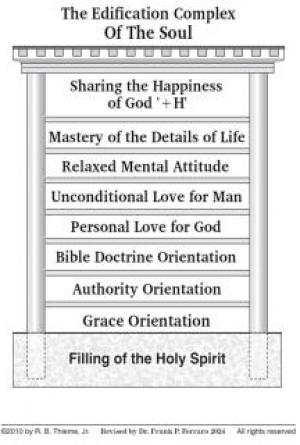After assuming the Ihram
1. It is forbidden for the Muslim to cohabitate with his wife, kiss, or touch her lustfully. During the Ihram period the pilgrim is also not allowed to marry or prose to a lady.
2. It is also forbidden to the Muslim to remove or trim his hair from any part of the body.
3. Similarly paring the nails of hands and toes is also forbidden.
4. A man in Ihram should not cover his head, however, it is permissible for him to be shaded by an umbrella o sit in the shadow of a tent or a tree.
5. During the Ihram one is not allowed to apply perfume to his body or garments and even to smell it.
6. It is forbidden during the Ihram to kill animal of game or to help others to do so.
7. The male pilgrim is not allowed to wear tailored clothes during the period of Ihram; instead of shoes he can use sandals. Women should not wear seamed veils on their faces or gloves on their hands.
As soon as the pilgrim arrives the Kaaba The Holy House of Allah, he circumambulates it seven rounds for the “Tawaf-Al Qodoum”
(circumambulation of arrival). He starts the tawaf from near the black stone. That is his Umra tawaf; the pilgrim can invoke Allah by whatever prayers he likes. (1)After terminating the seven rounds of tawaf he moves to the station of Ibrahim, where or some where in the vicinity, he performs a two raka at prayer of the tawaf.
٢٣
The pilgrim proceeds after that to the s’ay. He stars by mounting the eminence Al-Safa and faces the Qibla saying “Allahu Akbar, La Ilaha Ilallah”, and invokes Alah by whatever prayers he likes. Then, he walks to the eminence of Al-Marwa, mounts it, faces the Qibla, saying Allahu Akbar, invokes Allah, then reeturns to the eminence of Al-Safa, then repeats his walking from Safa to Marwa and vice versa till he terminates seven going and returning rounds.
The pilgrim who performs pilgrimage by tamattu, gets his hair shaven or trimmde after completing his Sa^y. For women, it is enough to trim a small part of their hair as long as a fingertip. In this way the pilgrim completes his Umra, discards his Ihram and is authorized to practise all the matters forbidden to him during Ihram duration.
If woman menstruates or gives birth or after Ihram, she becomes qarinah and performs Hajj by qiran. Therefore, she would intend to perform hajj and Umra combined in one Ihram. Menstruation and confinement do not forbid the woman from doing any of the acts of Hajj except circumambulating round the Holy House, which she should postpone until she becomes clean.
If she gets clean before people assume their Ihram, she takes a cleansing bath, join them when they assume their Ihram, and perform with them the rituals of Hajj. But if her cleanness from menses occurs at a later time, she combines Hajj and Umrra in one Ihram, performs all the rituals of Hajj, including staying in Mina, standing in Arafat, going to Muzdalifa, pelting, offering the sacrifice and trimming her hair on feast day. But she could not circumambulate the Holy House till she is clean. When she gets clean, she takes a cleansing bath and performs Circumambulating round the ka’ba and S’ay, hence, fulfilling both Hajj and Umra. This was the method adopted by the mother of believers, Aisha, according to the directions of the prophet (SAW). The prophet affirmed by his deeds and saying that the qarin combines Hajj and Umra and fulfils them both by performing one circumambulation and one S’ay. The prophet himself performed hajj in accordance with this manner and said “Umra is inserted in Hajj until the Doomsday”.
On the 8th day of Zul-Hijja, the pilgrims assume Ihram from their settlements in Makkah in the same manner they had done before at the miqqat. The pilgrim, whether be a man or a woman, in tends to perform Hajj by saying:
“ Allahuma labayka Hajjan”
٢٤
“Here am I My Lord, I intend to perform Hajj“
The pilgrim refrains himself from practicing any of the actions forbidden during the Ihram period in the same way that it has been explained before. Then he proceeds with other pilgrims to Mina to pass the night there. The pilgrim should perform his prayers there in time. He is permitted to shorten his prayers but not to combine one of them with the other. On the morning of Arafa (9th Zul-Hijja), the pilgrims go to Namira mosque to perform in congregation the Zuhr (noon) and Asr (Afternoon) prayers combined together. By noon, they proceed to Arafat to stay there till sunset praying, supplicating Allah, and asking Him for forgiveness.
The pilgrim can stand at any place in the valley of Afafat because the whole of Arafat is reserved for wuquf (standing). He should turn his face while praying and supplicating towards the Qibla and not towards the mount of Arafat. The pilgrim should be aware that climbing the mount is not a ritual service. The pilgrim should be aware that climbing the mount is not a ritual service, and that wiping oneself with its stones is a heretical deed.
After sunset, the pilgrims proceed to Muzdalafa where they perfrom Maghrib (evening) and Isha (night) prayers combined together, and shortening only Isha prayer. They spend the night there, and next day they perform the fajr (morning) prayer at dawn and leave to Mina before sunrise. When they arrive there, they pelt “Jamraat-AlAkaba “ by seven pebbles each one of which should not be larger than a chickpea. One should observe strictly the guidance and orders of the prophet to overcome the allurement of the Satan and avoid devious actions as pelting the “Jamra” by shoes and any other action which is not in accordance with the commandments of Allah or the traditions of the prophet.
After pelting Jamrat-Al-Aqaba, the pilgrim offers his sacrifice shaves or shortens his hair, but it is better to have it shaven rather than having it shortened. Women slightly trim off parts of their hair.
After that, the pilgrim can discard Ihram clothes and perform all the acts which were forbidden during the Ihram period except sexual intercourse.
Then pilgrim heads to Makkah, performs Tawaf Al-Ifabha, and the Sa’y hence, he discards his Ihram completely and is allowed to perform all the acts that were forbidden during the Ihram period with no exception.
The pilgrim returns to Mina, to stay there for three successive days (the Feast Day and the following two days). He spends the nights of these days at Mina at noon he pelts the thrJamrats (on the 11th and 12th of Zul-٢٥
Hijja). He starts by pelting Al-Jamratu Al-Sugrah (The small Jamra), then Al-Jamratu –al Wusta (The medium Jamra) and finally Jamrat Al-Akaba, Which he had pelted before on the morning of the Feast Day. Each one of these Jamrats is pelted by seven pebbles. The pilgrim has the choice after that, either to leave Mina on the 12th of Zul-Hijja or stay there till next day. It is better to stay till next day and perform pelting by noon. The final thing that a pilgrim should do, before leaving Makkah, is to perform
“Tawaf Al-Wadaa” (Tawaf of Departure). However women menstruating or giving childbirth are allowed to leave Makkah without performing Tawaf Al Wadaa.
Offering the slaughter can be done also on the 11th, 12th or 13th of Zul-Hijja and Tawaf-al-ifada can also be postponed till the pilgrim leaves Mina, but it is better to perform the rituals in accordance with the order and times which are mentioned before.
٢٦
Introducing IslamGuide.eu: Uw ultieme bron voor islamitische kennis
Welkom bij IslamGuide.eu, een uitgebreid online platform dat zich toelegt op het verstrekken van een schat aan informatie over de islam. Onze website is uw bron voor het begrijpen van de fundamenten van de islam, het verkennen van sharia principes, het ontdekken van krachtige dua's, het verdiepen in de islamitische cultuur, het verkennen van islamitische namen, het ontdekken van de prachtige namen van Al ah, het ontdekken van heerlijke halal recepten en het op de hoogte blijven van accurate gebedstijden.
Bij IslamGuide.eu geloven we dat kennis de sleutel is tot een dieper begrip van de islam. We hebben zorgvuldig een breed scala aan bronnen samengesteld om te voldoen aan de behoeften van individuen van al e achtergronden die op een reis van verkenning en verlichting wil en gaan. Of u nu een beginner bent of een ervaren volger van de islam, onze website is ontworpen om aan uw behoeften te voldoen en uw vragen te beantwoorden.
Een van de kernpunten van IslamGuide.eu is het verstrekken van uitgebreide informatie over de fundamenten van de islam. We duiken in de Vijf Zuilen - Shahada (geloof), Salah (gebed), Zakah (liefdadigheid), Sawm (vasten) en Haj (bedevaart) - en bieden een gedetail eerd begrip van elke zuil, de betekenis ervan en hoe het het leven van moslims over de hele wereld vormgeeft.
Het begrijpen van shariaprincipes is essentieel om het juridische en ethische kader te begrijpen waarin moslims hun leven leiden. Onze website gaat dieper in op verschil ende aspecten van de sharia en werpt licht op het doel, de principes en de toepassing ervan in de hedendaagse samenleving. We streven ernaar een evenwichtig en geïnformeerd perspectief te bevorderen op dit integrale aspect van de islamitische wet.
Bij IslamGuide.eu erkennen we de kracht van dua, of smeekbede, in het leven van een moslim.
We bieden een verzameling krachtige dua's voor verschil ende gelegenheden, waardoor bezoekers via oprechte gebeden contact kunnen maken met Al ah. Van het zoeken naar leiding en vergeving tot het uiten van dankbaarheid en bescherming zoeken, onze verzameling dua's dient als een spirituele gids voor individuen die troost en nabijheid tot het goddelijke zoeken.
De islamitische cultuur is rijk en divers, en we vieren haar schoonheid op IslamGuide.eu. We verkennen verschil ende facetten van de islamitische cultuur, waaronder kunst, architectuur, literatuur, muziek en traditionele gebruiken. Door het culturele erfgoed van moslims te begrijpen, krijgen bezoekers van onze website een diepere waardering voor de uitgestrektheid en rijkdom van islamitische tradities over de hele wereld.
Het kiezen van een betekenisvol e en passende naam is een belangrijk aspect van de islamitische cultuur. Onze website biedt een uitgebreide verzameling islamitische namen,
compleet met hun betekenissen en oorsprong. Of u nu op zoek bent naar een naam voor een pasgeborene of de diepte en schoonheid van islamitische namen wilt verkennen, onze naamendatabase biedt een waardevol e bron voor ouders, onderzoekers of iedereen die geïnteresseerd is in islamitische naamconventies.
IslamGuide.eu is ook een centrale plek voor degenen die hun begrip van de namen van Al ah wil en verdiepen. We verkennen de prachtige eigenschappen en namen van Al ah, reflecterend op hun betekenissen en betekenis in de islamitische theologie. Door in de namen van Al ah te duiken, kunnen bezoekers een diepe verbinding met het goddelijke ontwikkelen en een dieper begrip krijgen van Zijn oneindige genade, wijsheid en liefde.
Voedsel speelt een bijzondere rol in de islamitische cultuur, en bij IslamGuide.eu bieden we een verzameling tongstrelende halal recepten. Van traditionele gerechten tot moderne creaties, onze recepten zijn geschikt voor verschil ende smaken en dieetvoorkeuren. Bezoekers kunnen een breed scala aan gerechten verkennen en inspiratie vinden om heerlijke maaltijden te bereiden terwijl ze zich houden aan de halal dieetrichtlijnen.
Het bijhouden van gebedstijden is essentieel voor moslims over de hele wereld. IslamGuide.eu biedt accurate en up-to-date gebedstijden, waardoor bezoekers hun religieuze verplichtingen kunnen nakomen en troost kunnen vinden in het ritme van dagelijkse gebeden.
Tot slot is IslamGuide.eu een uitgebreide online bron die tegemoetkomt aan individuen die kennis en begrip van de islam zoeken. Van het verkennen van de fundamenten en principes van de islam tot het verdiepen in dua's, islamitische cultuur, namen van Al ah, halal recepten en accurate gebedstijden, biedt onze website een rijke en diverse verzameling informatie. Bezoek IslamGuide.eu en begin aan een reis van ontdekking en verlichting terwijl u uw begrip van de islam en haar leer verdiept.
https://islamguide.eu/







